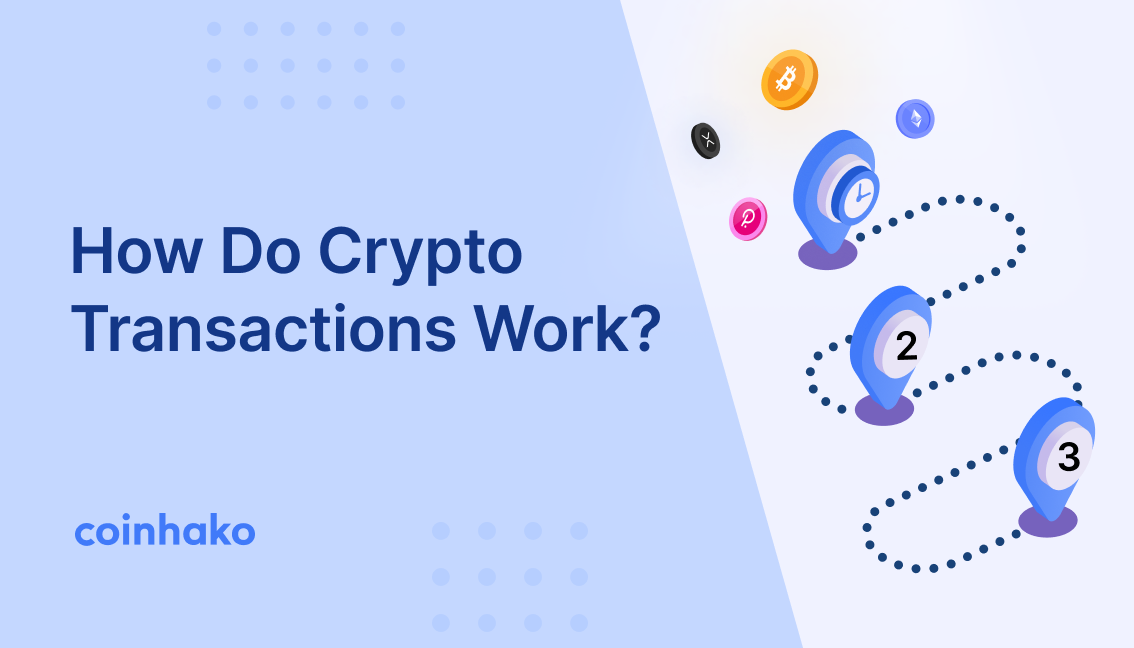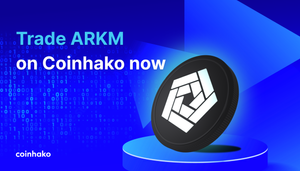Fun fact: Did you know that you can save on cross-border payments if you were to pay in crypto?
What is a crypto transaction?
As much as digital assets like Bitcoin are regarded as a store of value, they are also useful as a form of currency. Digital currencies can be used as a mode of payment, and ownership of these assets can be seamlessly transferred from one party to another.
Is transferring crypto similar to making an internet bank transfer? How does crypto get transferred from sender to recipient?
We break down crypto transactions and explain how they work 👇
How does a crypto transaction work?
A crypto transaction happens when a sender transfers crypto from his/her wallet address to another person’s wallet address.
✏️ Sample crypto transaction:
Person A wants to send 1 BTC to Person B. To do so, Person A needs to set up a wallet so that he can send the funds from his wallet to Person B’s wallet.
Like the name suggests, a wallet allows you to store, send and receive one, or multiple cryptocurrencies.
Wallets can take many shapes and forms, including cold and hot wallets, online, offline and hardware wallets.
👉🏻 Read more about bitcoin wallets HERE.
How are crypto transactions verified on the blockchain?
When you initiate a bank transfer, the approval of the bank is required for the transaction to be successful.
Here's where crypto is different.
Cryptocurrencies were designed to function as an electronic peer-to-peer cash system, and are not governed by a central authority. Instead, cryptocurrency transactions depend on the efforts of the network to get verified.
Using Bitcoin as an example:
All bitcoin transactions are recorded on a public, distributed ledger — the blockchain — and this data is immutable and cannot be tampered with. Having records in place also ensures that bitcoins are not spent twice.
The Bitcoin network is made up of hundreds of thousands of computers, operated by people known as nodes or miners.
These miners play an integral role in the circulation and maintenance of the Bitcoin economy, by investing substantial computational efforts to solve complex mathematical puzzles, in order to verify transactions and mine new Bitcoin on the network.
Transactions made around the same time are added to a block. For bitcoin transactions to be verified on the blockchain, the network of nodes must come to an agreement that the transaction is valid. This process of attaining validation from the network is known as “consensus”.
Consensus: Proof-Of-Work vs Proof-of-Stake
The above explanation of how bitcoin transactions get verified demonstrate the Proof-of-Work consensus algorithm, where miners expend computational effort to verify transactions in exchange for rewards.
Bitcoin miners get rewarded in Bitcoin for validating transactions and mining new bitcoin, and this reward is halved every 4 years.
👉🏻🌗 Read more about Bitcoin halving HERE
In 2012, a new consensus mechanism known as Proof-of-Stake was created as an alternative to Proof-of-Work. Proof-of-Stake selects validators of transactions based on the quantity of the tokens they hold, and incentivise them in transaction fees rather than cryptocurrency.
The second largest cryptocurrency by market cap, Ethereum, is transitioning from a Proof-of-Work consensus algorithm to a Proof-of-Stake one.
👉🏻Read about Ethereum 2.0 HERE
Can I cancel Bitcoin or Ethereum transactions?
Once transactions are broadcasted on the blockchain, they are irretrievable, and cannot be reversed or cancelled. If you have sent crypto to the wrong address, it is quite unlikely for you to get your funds back.
How much do crypto transaction fees cost?
Crypto transaction fees are different from the trading fees charged by platforms like Coinhako. These fees are paid directly to the miners to incentivise them for maintaining the network and we do not earn from these.
👉🏻 For a better understanding of fees, please click HERE.
How long do crypto transactions take? Does it differ for various cryptos?
The time taken for cryptocurrency transactions varies from network to network. The timings are highly contingent on how each network is structured.
Transactions may appear to be “pending” before they receive sufficient confirmations on the network for it to go through. It’s worth noting that the number of confirmations needed for validating a transaction also depends on the network.
What causes delays in crypto transactions?
Visualise blockchain transactions in a fun way on TxStreet.com
Just like peak hour traffic, the network gets congested sometimes. A congested network will cause transactions to be processed at a slower speed, and delays could potentially occur due to a lack of hash power or platform requirements.
Can delays in crypto transactions be avoided?
You can avoid delays by not initiating transactions during periods of high network traffic.
Check network traffic and hash power on Blockchain.com or Etherscan.io for a better idea of network conditions.
Alternatively, check out our recommendations 👉🏻HERE for more information about cryptocurrency transaction timings.
📩 Sign-up to Subscribe to our mailing list to have them delivered straight to your inbox!
👉Join our Telegram community
🤔If you have any enquiries, you may contact us here or you can visit our Information Page.
Coinhako is available in these countries!
🚀 Buy Bitcoin at Coinhako Singapore
🚀 Mua Bitcoin Coinhako Vietnam
Copyright © Coinhako 2021 All Rights Reserved. Read more on our terms of use of this blog.
All opinions expressed here by Coinhako.com are intended for educational purposes, taken from the research and experiences of the writers of the platform, and should not be taken as investment or financial advice.






